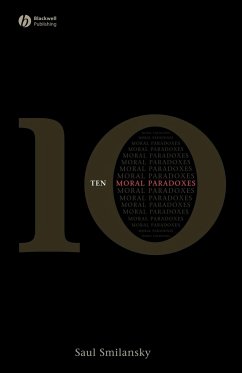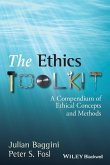_ If a severe misfortune makes your life better, was it unfortunate?
_ Could it be that 50% of competent medical doctors ought promptly to retire?
_ Might a justice system threaten with unjust punishment, to avert the need for punishment?
_ Could things become too good, morally?
_ Can terrorists morally complain if innocent people they care about are harmed?
The importance of paradox in the study of philosophy, from metaphysics to logic, is evident from the abundant literature on the subject. But until now, very little critical study of paradox within ethics has been available.
The first of its kind, this cutting edge work of philosophical ethics makes a powerful case for the centrality of moral paradox. Presenting ten diverse and original moral paradoxes, the book challenges some of our deepest moral views. This innovative volume also asks whether the existence of moral paradox is damaging or beneficial, and explores more generallywhat paradoxicality can teach us about morality and life. Concise and provocative, 10 Moral Paradoxes presents analytic moral philosophy in an engaging way; posing new questions, proposing possible solutions, and challenging the reader to wrestle with the paradoxes.
_ Could it be that 50% of competent medical doctors ought promptly to retire?
_ Might a justice system threaten with unjust punishment, to avert the need for punishment?
_ Could things become too good, morally?
_ Can terrorists morally complain if innocent people they care about are harmed?
The importance of paradox in the study of philosophy, from metaphysics to logic, is evident from the abundant literature on the subject. But until now, very little critical study of paradox within ethics has been available.
The first of its kind, this cutting edge work of philosophical ethics makes a powerful case for the centrality of moral paradox. Presenting ten diverse and original moral paradoxes, the book challenges some of our deepest moral views. This innovative volume also asks whether the existence of moral paradox is damaging or beneficial, and explores more generallywhat paradoxicality can teach us about morality and life. Concise and provocative, 10 Moral Paradoxes presents analytic moral philosophy in an engaging way; posing new questions, proposing possible solutions, and challenging the reader to wrestle with the paradoxes.








